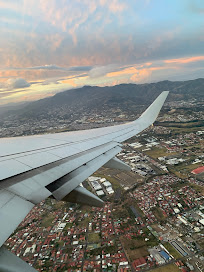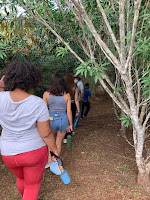Returning to the U.S.

After three months abroad, it can be difficult to return to life in the states. I have been back home for about two weeks now, and there is still the occasional thing that takes some getting used to again. As soon as the plane landed in Dallas, Texas, I could immediately feel a shift in energy. While Costa Rican culture tends to be laid back and very go-with-the-flow, I think we all know that the culture of the U.S. is almost always fast-paced and sometimes stressful. It took me about 4-5 days to adjust back to this different way of viewing time. Although no one in my household speaks Spanish, I do still find myself thinking and speaking in Spanish at least once or twice a day. While this can be slightly annoying at times, I don't see it as a problem. My brain changed while abroad, and my Spanish skills are something to be proud of. While it might sound silly, slight cultural changes can trip you up sometimes, and that's okay. For instance, it has been difficult









